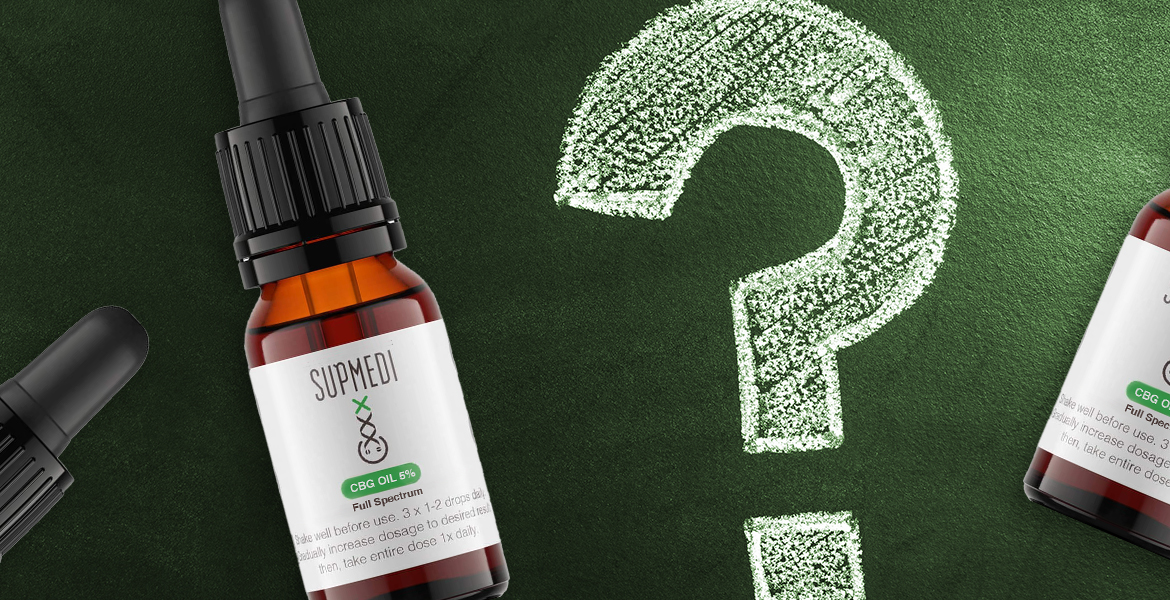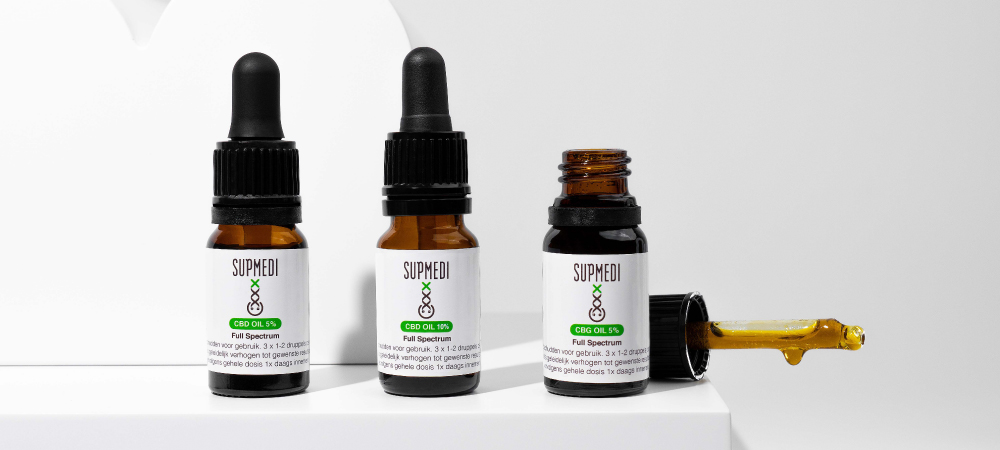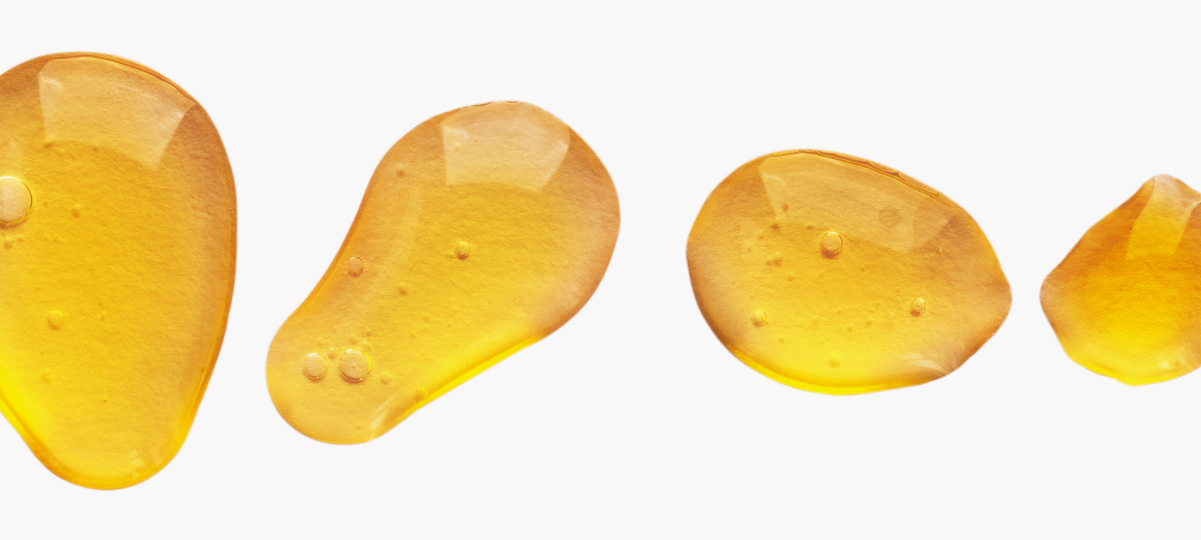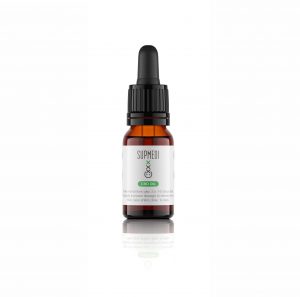
Back to Basics: What is Cannabidiol in CBD Oil?
19 December 2024Did you know that CBD stands for cannabidiol and that this is the compound that makes the CBD oil supplement so effective? But what exactly is cannabidiol, where does it come from, and what does it do? In this blog, we answer these questions and explain what else is found in CBD oil.
Where Does CBD Oil Come From?
To produce CBD oil, the hemp plant is essential. This plant produces a wide range of valuable compounds. To utilize these compounds, they must be extracted from the plant. First, the plant is cultivated. This involves the industrial hemp plant, which naturally produces almost no THC.
As you may know, THC is the psychoactive compound that induces a high. In the Netherlands, CBD oil can legally contain up to 0.3% THC—such a small amount that it has no noticeable effect. The seeds of this specific hemp variety are sown, and the plant is grown to maturity. Once mature, it is ready for harvest. The active compounds are then extracted using different methods: CO2 extraction, alcohol extraction, and oil extraction. At SupMedi, we use the CO2 extraction method.
This is currently the most popular way to obtain CBD. This method efficiently extracts all active compounds from the plant. Supercritical carbon dioxide is used in this process, where the pressure is increased to the point that the gas behaves like a liquid. This liquid CO2 is then used to extract CBD and other cannabinoids from the hemp plant. The benefit of CO2 extraction is that the plant doesn’t need to be heated, preserving the active compounds.
After this process, the different cannabinoids are ready to be processed into CBD oil. Below, we explain what cannabidiol is and discuss the effects of the different compounds.

Cannabidiol and Other Cannabinoids in the Hemp Plant
Humanity has known for centuries that the hemp plant contains powerful active compounds. The most well-known cannabinoid is likely THC, but CBD has also made a name for itself. While THC is recognized for its mind-altering effects, CBD is becoming increasingly popular for its many positive health effects.
But how do CBD and other cannabinoids influence our bodies? Our bodies respond to these compounds because we have an endocannabinoid system (ECS). This is a complex network of receptors distributed throughout the body. It functions with the help of naturally occurring cannabinoids in our bodies but also responds to plant-based cannabinoids like CBD and THC.
CBD is a cannabinoid derived from the hemp plant. However, it is only one of many cannabinoids. Below, we discuss some of the more than one hundred cannabinoids discovered so far in the hemp plant.
Cannabidiol (CBD)
CBD stands for cannabidiol. CBD oil is named after this compound because, apart from THC, it is the most abundant cannabinoid in the hemp plant. The other cannabinoids occur in much lower concentrations. CBD has anti-inflammatory, calming, and pain-relieving properties. It affects the immune system, emotions, sleep patterns, hormones, and much more.
Cannabinol (CBN)
Not much is known about cannabinol (CBN) yet. It is a breakdown product of THC. It may have antioxidant properties and can help stimulate appetite while also having a calming effect.
Cannabigerol (CBG)
One of the cannabinoids increasingly used separately is cannabigerol, or CBG. It has strong anti-inflammatory properties and can enhance the effects of CBD through the entourage effect. Additionally, it has potent antibacterial and antifungal properties.
Cannabichromene (CBC)
Cannabichromene (CBC) also has anti-inflammatory and pain-relieving effects. It may help with mood disorders such as depression. Additionally, it has a calming effect and can aid with sleep issues.
These are just a few of the many cannabinoids produced by the hemp plant. There are also other compounds, such as terpenes and flavonoids, that can work together with cannabinoids. All these substances are present in full-spectrum CBD oil.

The Properties of Cannabidiol
If you decide to start using CBD, you will likely purchase CBD oil. This oil contains cannabidiol, and if you opt for a full-spectrum oil, it will also contain other cannabinoids. So, what exactly are the properties of cannabidiol, and what are its benefits? Below, we explain.
Cannabidiol has anti-inflammatory properties that can be beneficial for both acute and chronic inflammation. In cases of arthritis and rheumatism, CBD can help reduce inflammation, thereby decreasing swelling and pain. One of CBD’s advantages is that it is safe for long-term use and has minimal side effects, unlike conventional anti-inflammatory medications.
Another characteristic of cannabidiol is its pain-relieving effect. This cannabinoid influences the ECS’s pain receptors, making them less sensitive to pain signals, which results in reduced pain. CBD is effective against various types of pain, such as headaches, joint pain, and nerve pain.
Additionally, CBD has a calming effect. This can be particularly helpful for issues such as stress, anxiety, and sleep disorders. After taking CBD, you may notice that you can relax both physically and mentally. It can help reduce overthinking and anxious thoughts. If you have trouble falling asleep or staying asleep, CBD may help you fall asleep more easily and sleep more soundly.
As you can see, cannabidiol is a highly versatile compound. If you’re looking for a high-quality supplement, check out our shop for CBD Oil, CBD Tablets, or CBD Food and Drinks.








